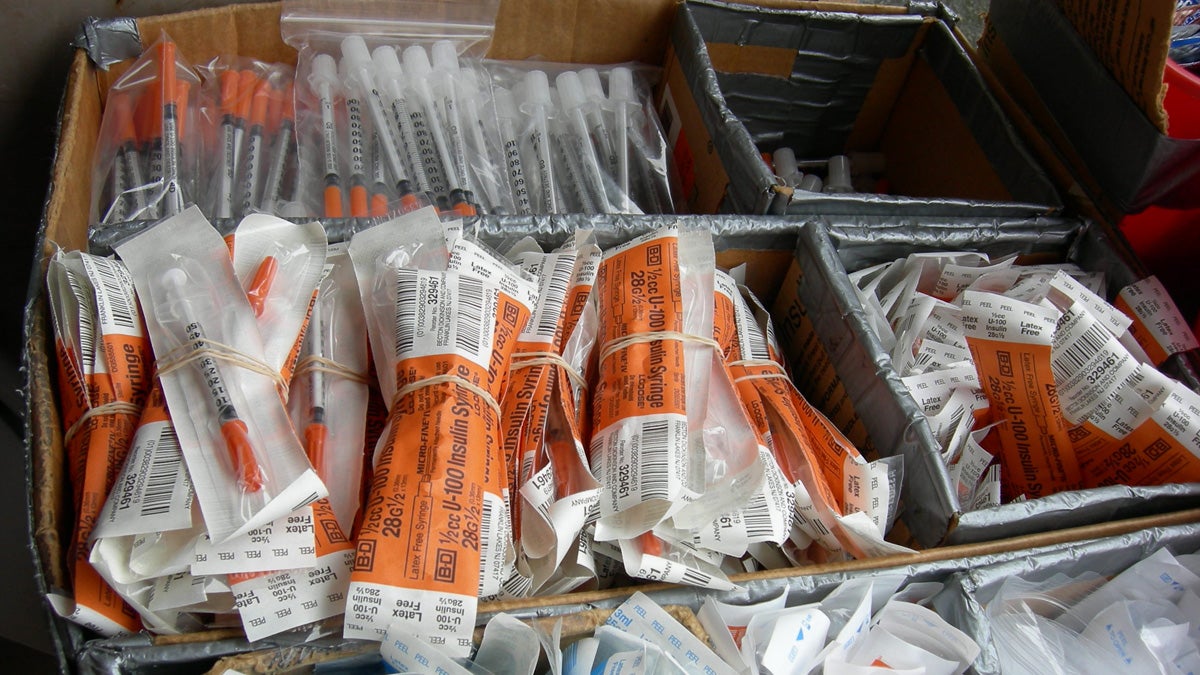Why are we not testing more people for Hep C?
Listen via Wikimedia Commons) " title="needle" width="1" height="1"/>
via Wikimedia Commons) " title="needle" width="1" height="1"/>
Hepatitis C is often transmitted by needle. It's been compared to AIDs, however it's still not talked about often. (Joe Mabel/via Wikimedia Commons)
The majority of people who have Hepatitis C don’t even know they have it. So why are we not testing more people for it?
The majority of people who have Hepatitis C don’t even know they have it. So why are we not testing more people for it? We asked New York University Medical Ethicist Art Caplan what is standing in the way.
“It’s a complex set of factors, but the major one is it’s a low incidence disease, despite the fact that many, many Americans have it,” he told Pulse host Maiken Scott. “It’s only probably two percent of the overall population.”
That, coupled with the relatively high cost of general screening and treatments not being as effective as they are now has resulted in less screening and less people knowing they have it. Now, he says, we’ve suddenly got a very effective non side effects intervention that seems to work.
“To make an analogy that’s strained, but somewhat similar,” he says. “No one wanted to talk about impotence for a very long time in men and then came the erectile dysfunction drugs and now they talk about it every minute on sports events, so out of the closet it came when a treatment appeared.”
But that treatment comes with a cost.
“It’s clear that Medicaid programs in different states can’t really afford the prices. The VA is exceedingly nervous about the impact of this new drug on its budget. The price must be driven down.”
That’s a tough battle since Hep C has long been a silent epidemic, getting very little attention, despite being a problem for decades. The disease spreads through blood to blood contact, often through sharing needles. So, if we start putting more attention into screening and focusing on at-risk groups, who should we screen?
Caplan says we should first start with people who come into the emergency room, who may have overdosed, or those who are in drug treatment programs. We’d also want to reach out to people who have donated blood and turn up to be in an at-risk group and people who’ve received blood before 1992 [before the nation’s blood supply started getting screened for Hep C], if we have records on them.
“It’s not easy, but it could be done,” Caplan says.
WHYY is your source for fact-based, in-depth journalism and information. As a nonprofit organization, we rely on financial support from readers like you. Please give today.




